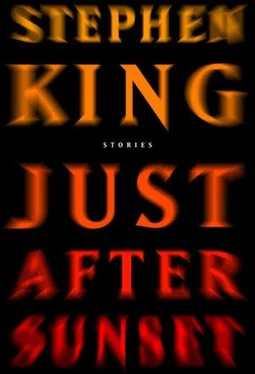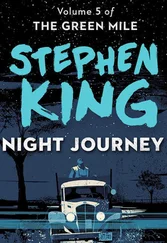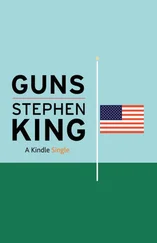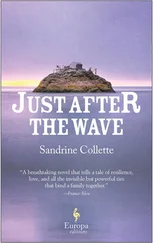Stephen King - Just After Sunset
Здесь есть возможность читать онлайн «Stephen King - Just After Sunset» весь текст электронной книги совершенно бесплатно (целиком полную версию без сокращений). В некоторых случаях можно слушать аудио, скачать через торрент в формате fb2 и присутствует краткое содержание. Город: New York, Год выпуска: 2009, ISBN: 2009, Издательство: SCRIBNER, Жанр: Ужасы и Мистика, на английском языке. Описание произведения, (предисловие) а так же отзывы посетителей доступны на портале библиотеки ЛибКат.
- Название:Just After Sunset
- Автор:
- Издательство:SCRIBNER
- Жанр:
- Год:2009
- Город:New York
- ISBN:978-1-4391-2548-9
- Рейтинг книги:5 / 5. Голосов: 1
-
Избранное:Добавить в избранное
- Отзывы:
-
Ваша оценка:
- 100
- 1
- 2
- 3
- 4
- 5
Just After Sunset: краткое содержание, описание и аннотация
Предлагаем к чтению аннотацию, описание, краткое содержание или предисловие (зависит от того, что написал сам автор книги «Just After Sunset»). Если вы не нашли необходимую информацию о книге — напишите в комментариях, мы постараемся отыскать её.
Just After Sunset — читать онлайн бесплатно полную книгу (весь текст) целиком
Ниже представлен текст книги, разбитый по страницам. Система сохранения места последней прочитанной страницы, позволяет с удобством читать онлайн бесплатно книгу «Just After Sunset», без необходимости каждый раз заново искать на чём Вы остановились. Поставьте закладку, и сможете в любой момент перейти на страницу, на которой закончили чтение.
Интервал:
Закладка:
She wasted no time on pleasantries. “I think you should come right away,” she said. “Not just Ralph for the night shift. All of you.”
“Is he going?” I asked. Ruth stopped folding things and came over. She put a hand on my shoulder. We had been expecting this — hoping for it, really — but now that it was here, it was too absurd to hurt. Doc had taught me how to use a Bolo-Bouncer when I was a kid no older than that day’s little blind intruder. He had caught me smoking under the grape arbor and had told me — not angrily but kindly — that it was a stupid habit, and I’d do well not to let it get a hold on me. The idea that he might not be alive when tomorrow’s paper came? Absurd.
“I don’t think so,” Nurse Chloe said. “He seems better.” She paused. “I’ve never seen anything like it in my life.”
He was better. When we got there fifteen minutes later, he was sitting on the living-room sofa and watching the Pirates on the house’s larger TV — no technological marvel, but at least colorfast. He was sipping a protein shake through a straw. He had some color. His cheeks seemed plumper, perhaps because he was freshly shaved. He had regained himself. That was what I thought then; the impression has only grown stronger with the passage of time. And one other thing, which we all agreed on — even the doubting Thomasina to whom I was married: the yellow smell that had hung around him like ether ever since the doctors sent him home to die was gone.
He greeted us all by name, and told us that Willie Stargell had just hit a home run for the Buckos. Ralph and I looked at each other, as if to confirm we were actually there. Trudy sat on the couch beside Doc, only it was more of a whoomping down. Ruth went into the kitchen and got herself a beer. A miracle in itself.
“I wouldn’t mind one of those, Ruthie-doo,” my father said, and then — probably misinterpreting my slack and flabbergasted face for an expression of disapproval: “I feel better. Gut hardly hurts at all.”
“No beer for you, I think,” Nurse Chloe said. She was sitting in an easy chair across the room and showed no sign of gathering her things, a ritual that usually began twenty minutes before the end of her shift. Her annoying do-it-for-mommy authority seemed to have grown thin.
“When did this start?” I asked, not even sure what I meant by this , because the changes for the better seemed so general. But if I had any specific thing in mind, I suppose it was the departure of the smell.
“He was getting better when we left this afternoon,” Trudy said. “I just didn’t believe it.”
“Bolsheveky,” Ruth said. It was as close as she allowed herself to cursing.
Trudy paid no attention. “It was that little girl,” she said.
“Bolsheveky!” Ruth cried.
“What little girl?” my father asked. It was between innings. On the television, a fellow with no hair, big teeth, and mad eyes was telling us the carpets at Juker’s were so cheap they were almost free. And, dear God, no finance charges on layaway. Before any of us could reply to Ruth, Doc asked Nurse Chloe if he could have half a beer. She refused him. But Nurse Chloe’s days of authority in that little house were almost over, and during the next four years — before a chunk of half- chewed meat stopped his throat forever — my father drank a great many beers. And enjoyed every one, I hope. Beer is a miracle in itself.
It was that night, while lying sleepless in our hard Rammit Inn bed and listening to the air conditioner rattle, that Ruth told me to keep my mouth shut about the blind girl, whom she called not Ayana but “the magic negro child,” speaking in a tone of ugly sarcasm that was very unlike her.
“Besides,” she said, “it won’t last. Sometimes a light bulb will brighten up just before it burns out for good. I’m sure that happens to people too.”
Maybe, but Doc Gentry’s miracle took. By the end of the week he was walking in his backyard with me or Ralph supporting him. After that, we all went home. I got a call from Nurse Chloe on our first night back.
“We’re not going, no matter how sick he is,” Ruth said half-hysterically. “Tell her that.”
But Nurse Chloe only wanted to say that she’d happened to see Doc coming out of the Ford City Veterinary Clinic, where he had gone to consult with the young head of practice about a horse with the staggers. He had his cane, she said, but wasn’t using it. Nurse Chloe said she’d never seen a man “of his years” who looked any better. “Bright-eyed and ring-tailed,” she said. “I still don’t believe it.” A month later he was walking (caneless) around the block, and that winter he was swimming every day at the local Y. He looked like a man of sixty-five. Everyone said so.
I talked to my father’s entire medical team in the wake of his recovery. I did it because what had happened to him reminded me of the so-called miracle plays that were big in the sticksville burgs of Europe in medieval times. I told myself if I changed Dad’s name (or perhaps just called him Mr. G.) it could make an interesting article for some journal or other. It might have even been true — sort of — but I never did write the article.
It was Stan Sloan, Doc’s family practice guy, who first raised the red flag. He had sent Doc to the University of Pittsburgh Cancer Institute and so was able to blame the consequent misdiagnosis on Drs. Retif and Zamachowski, who were my dad’s oncologists there. They in turn blamed the radiologists for sloppy imaging. Retif said the chief of radiology was an incompetent who didn’t know a pancreas from a liver. He asked not to be quoted, but after twenty-five years, I am assuming the statute of limitations on that one has run out.
Dr. Zamachowski said it was a simple case of organ malformation. “I was never comfortable with the original diagnosis,” he confided. I talked to Retif on the phone, Zamachowski in person. He was wearing a white lab coat with a red T-shirt beneath that appeared to read I’D RATHER BE GOLFING. “I always thought it was Von Hippel-Lindau.”
“Wouldn’t that also have killed him?” I asked.
Zamachowski gave me the mysterious smile doctors reserve for clueless plumbers, housewives, and English teachers. Then he said he was late for an appointment.
When I talked to the chief of radiology, he spread his hands. “Here we are responsible for photography, not interpretation,” he said. “In another ten years, we will be using equipment that will make such misinterpretations as this one all but impossible. In the meantime, why not just be glad your pop is alive? Enjoy him.”
I did my best on that score. And during my brief investigation, which I of course called research, I learned an interesting thing: the medical definition of miracle is misdiagnosis.
Nineteen eighty-three was my sabbatical year. I had a contract with a scholarly press for a book called Teaching the Unteachable: Strategies for Creative Writing , but like my miracle-play article it never got written. In July, while Ruth and I were making plans for a camping trip, my urine abruptly turned pink. The pain came after that, first deep in my left buttock, then growing stronger as it migrated to my groin. By the time I started to piss actual blood — this was I think four days after the first twinges, and while I was still playing that famous game known the world over as Maybe It Will Go Away on Its Own — the pain had passed from serious into the realm of excruciating.
“I’m sure it’s not cancer,” Ruth said, which coming from her meant she was sure it was. The look in her eyes was even more alarming. She would deny this on her deathbed — her practicality was her pride — but I’m sure it occurred to her just then that the cancer that had left my father had battened on me.
Читать дальшеИнтервал:
Закладка:
Похожие книги на «Just After Sunset»
Представляем Вашему вниманию похожие книги на «Just After Sunset» списком для выбора. Мы отобрали схожую по названию и смыслу литературу в надежде предоставить читателям больше вариантов отыскать новые, интересные, ещё непрочитанные произведения.
Обсуждение, отзывы о книге «Just After Sunset» и просто собственные мнения читателей. Оставьте ваши комментарии, напишите, что Вы думаете о произведении, его смысле или главных героях. Укажите что конкретно понравилось, а что нет, и почему Вы так считаете.












